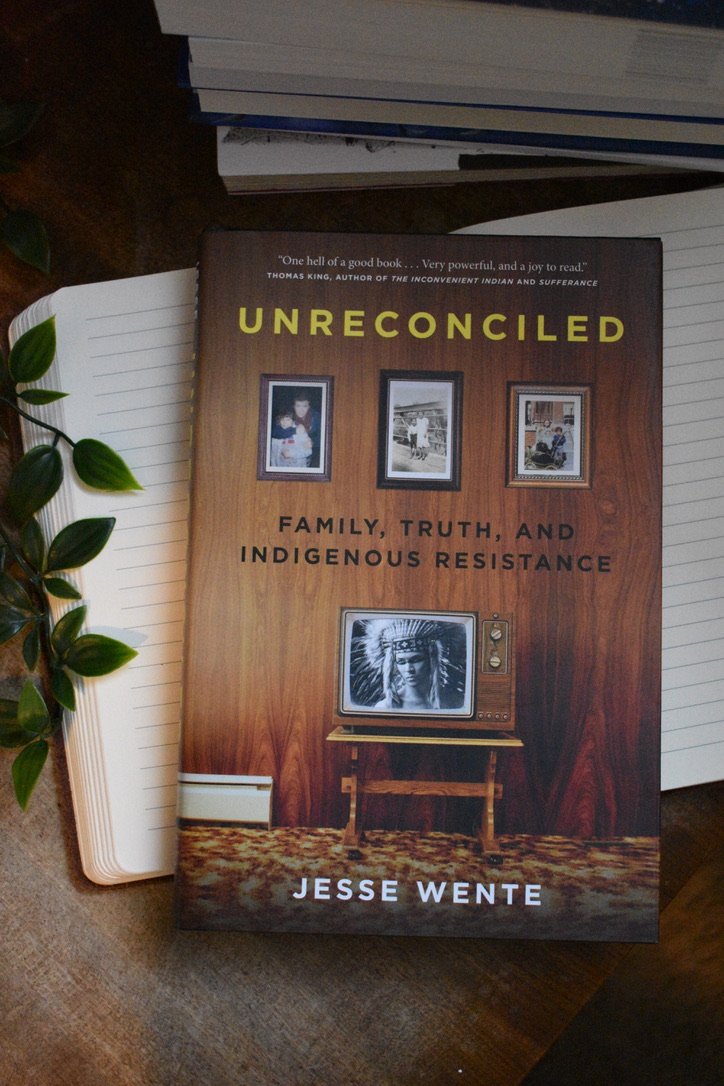Unreconciled by Jesse Wente
Lorem ipsum dolor sit amet, consectetur adipiscing elit, sed do eiusmod tempor incididunt ut labore et dolore magna aliqua.
Unreconciled is a memoir that serves so many purposes all in one.
It's a life story. It's political commentary. It's a media guide. It's a textbook. Jesse Wente wrote a book that instantly jumped into one of my favourite memoirs and taught me so much.
Wente is an Indigenous man with mixed ancestry. Unreconciled dives into the way these two facets of his identity intertwine. He writes about personal experience, professional experience, personal reflections, and the space in between them all as he challenges the narratives told about Indigenous peoples in Canada. He writes about cultural appropriation, the ways that it impacts Indigenous communities and professionals and the personal impact that the 'Cultural Appropriation Prize' had on his life. He writes about his family and growing up with privilege and how that changed his relationship to his home nation. He writes of his own family and his role in honouring them.
The book skillfully weaves throughout assessment of the film industry itself, hopeful visions for the future, and connections to his own personal journey. I loved the format because it is a reminder to the reader that all we know is because of who we are. Our experiences, our history, our identities all shape who we are and the things that we learn. The fact that you picked up a memoir by an Indigenous film and media professional is probably a choice that ties back into who you are. I know I picked it up while studying Indigenous education. Everything is connected, and as such, literature should represent those connections without trying to separate them.
It was a beautiful read that is part memoir, part critical assessment of the film industry itself, and part hopeful visions for future storytellers and artists. I would especially recommend this book for anyone interested in Indigenous art/media/literature! As a non-Indigenous woman, I found it educational for future work and understanding where boundaries lie in order to respect Indigenous people, while also a great story!
Reading Journal Questions
What steps can you take to avoid cultural appropriation in your own settings?
How does Jesse's story connect with your own? Did you ever see yourself in his experiences, or was it entirely new for you to read about some of the things he faced?
Are you surprised at the backlash he faced for speaking out against harmful representations in the media? Have you ever faced something similar?
What did this book teach you?

